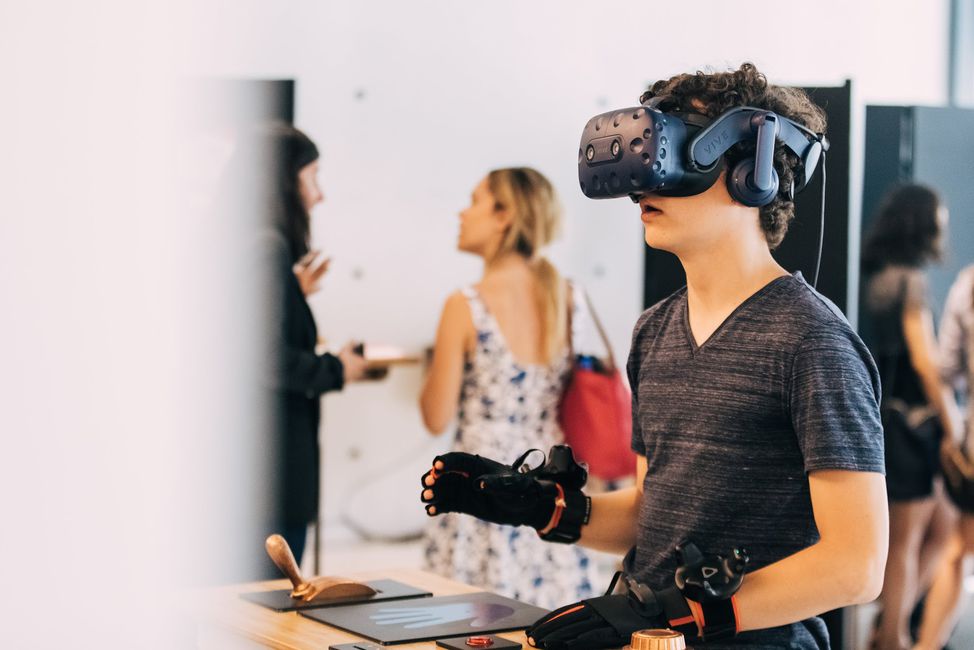Modern breakthroughs in science and technology have dramatically improved our ability to exchange knowledge, communicate, and enhance the human condition globally. Yet, for every new opportunity that arises, these breakthroughs can — and often do — cause unforeseen and unprecedented problems. Data is being weaponized to undermine democratic processes. Digital addiction continues to manifest itself in countries around the world. The gig economy is oversaturating markets, depressing wages, and driving a plague of underemployment. Fossil fuels are killing species and destroying the environment.
What’s worse is the normalization of these challenges. As our data becomes more lucrative, our technologies more ubiquitous, and our energy and resource demands more pressing, these problems become entrenched and harder to solve.
Business as usual isn’t a viable option. Talking about change is no longer sufficient. It’s time to translate all the think pieces and articles, planning sessions and international forums into a real, sustained movement.
That’s not to say that no one has taken any action. The Extinction Rebellion, #DeleteUber, Occupy Wall Street, #MeToo, Black Lives Matter, The Arab Spring — communities are coming together to protest injustices and achieve meaningful change. Many dedicated, brave, and creative people are fighting every day to improve the situation on our planet.
However, the newscycle and the public’s attention span quickly moves on to the next trending story.
Put simply, the question we face isn’t simply how to prompt action; it’s about how to unite and then sustain both attention and action. How do we thrive in a future that looks nothing like the past? These are the questions Boma seeks to answer.
Three places to start
How can we innovate novel systems to address the problems that we face today? Where do we start? With such complex and intersectional issues to face, even a first step can feel overwhelming. So, here are a few places to begin — things we know need to happen if we are to secure change and, ultimately, create a more sustainable future.
1. Act Now. According to climate scientists, unless we make dramatic changes, we have just 10 years until we hit the 1.5°C tipping point. We need to act now. Ideas alone are not, and never will be, enough. We need to embrace the complexity of the issues that we face and work towards concrete solutions that provide us with tangible actions and outcomes.
2. Stop working in silos. Despite the rhetoric of nationalism we hear from politicians and the media, we need to understand that there is only one world, and there is no planet B. No single person, community, organization, or government can address the problems that we face. We need an integrated bottom-up and top-down system where national and international stakeholders are all driving collective action. This will require radical collaboration and inclusivity, and everyone needs to commit to this idea.
As Emmanuel Macron notes, “We have two possible ways ahead. We can choose isolationism, withdrawal and nationalism. This is an option. It can be tempting to us as a temporary remedy to our fears. But closing the door to the world will not stop the evolution of the world….In the long run, we will have to face the same realities. We’re just citizens of the same planet.” We must not close ourselves off. We must work together.
3. Prioritize tomorrow. We can no longer make decisions that benefit us today at the expense of tomorrow. Since social, economic, and environmental prosperity are inherently linked, we need to prioritize sustainable, long-term profitability over short-term gains; consider the collective well-being; and build a solid infrastructure that benefits and rewards individuals, businesses, and other organizations who embody and adhere to these standards.
The Business Roundtable recently created a new Statement on the Purpose of a Corporation. The statement notes that corporations do not exist exclusively to serve shareholders, but must work for the benefit of all. The new statement was signed by more than 180 prominent American CEOs, signaling a new commitment to supporting their workers and communities. To encourage this, 33 B Corp CEOs took out a full-page advertisement in the New York Times offering to work together. It’s an auspicious beginning that Boma will watch closely — and we hope you do too.
What We’re Doing
 A group of individuals at a Boma dinner.Photo Credit: Boma
A group of individuals at a Boma dinner.Photo Credit: Boma Backstage view of a Boma summit.Photo Credit: Boma
Backstage view of a Boma summit.Photo Credit: Boma Trying VR at a Boma club.Photo Credit: Boma
Trying VR at a Boma club.Photo Credit: Boma
Several very different futures are available to the world right now. For a few precious years, our choices — amplified by technology and globalization — will direct the course of our collective future. Creating a positive future requires intelligent and intentional action today. Facilitating that positive, intentional action is Boma’s purpose.
Boma provides extraordinary training programs for executives and leaders, based on content and insights from the world’s leading thinkers and doers. We are disrupting the outdated corporate training model, delivering cutting-edge and constantly evolving curriculum focused on ‘what you need to know’ and ‘who you need to be’ to lead courageously and purposefully through this chaotic time, and into the future. Our holistic and sustainable leadership training empowers people and organizations to navigate disruption, and think differently about the world we have, and the world we want to create.
Our ambition is to produce the leaders the world needs: people who combine technical sophistication with the personal courage and integrity to lead us into a better tomorrow. But if we are to succeed, we are going to need a lot of help. This is just the beginning, and we’d love to have you join us.
*A brief selection of important ideas you should read: The Collapse of Globalism (John Ralston Saul, 2005); UN Report Describes Risks of Inaction on Climate Change (NYTime, 2007); Data Miner Aims to Get Inside U.S. Voters’ Heads (Bloomberg, 2015); We’ve Got This Whole Unicorn Thing All Wrong (Tim O’Reilly, 2015) Exponential Growth Devours and Corrupts (David Heinemeier Hansson, 2017); Just 8 Men Own Same Wealth as Half the World (Oxfam, 2017); The ‘Attention Economy’ Created by Silicon Valley is Bankrupting Us (TechCrunch, 2017); 21 Lessons for the 21st Century (Yuval Noah Harari, 2018)


